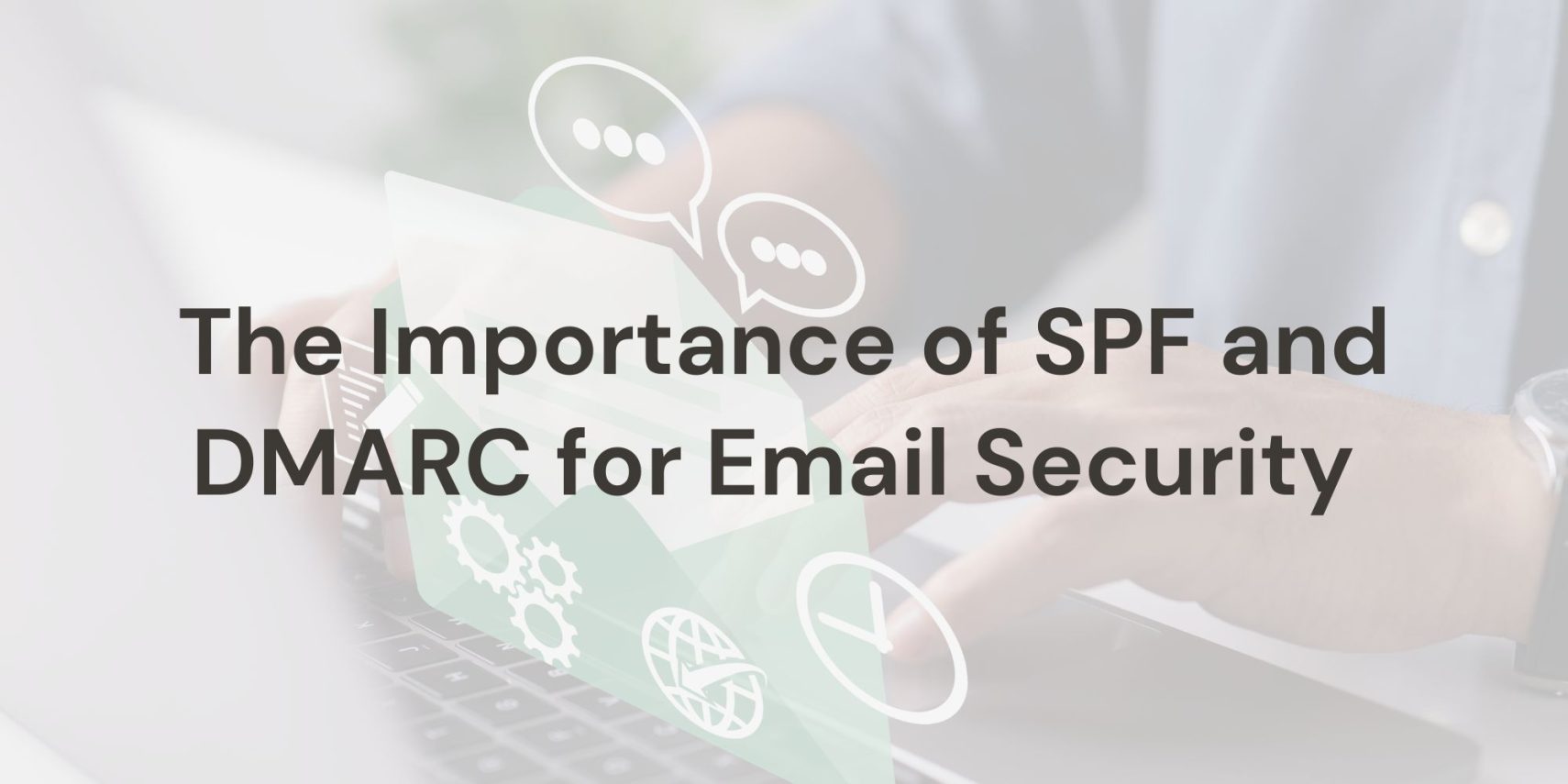Latest
The Importance of SPF and DMARC for Email Security

Recent changes to email security policies by major providers such as Google and Yahoo have made it important to implement SPF and DMARC correctly. Domains that fail to comply with these updated authentication standards may see reduced deliverability or have their messages rejected entirely.
Email remains one of the primary ways in which businesses and consumers communicate in the digital space, but it is also the most common area in which cyber threats like phishing, spam and email spoofing are utilised. To protect yourself from these risks and help secure your email from malicious usage, there are a couple of methods that we recommend.
Sender Policy Framework (SPF), and Domain-based Message Authentication, Reporting and Conformance (DMARC) are two fundamental components of email security which help combat potential cyber security risks. This blog will detail what SPF and DMARC does, how these two components relate, and why you should setup SPF and DMARC to protect your email.
What is SPF?
Sender Policy Framework (SPF) is an email authentication method designed to prevent spammers from sending messages on behalf of your domain. It works by allowing domain owners to specify which mail servers are authorised to send emails on their behalf through a DNS (Domain Name System) record.
Why SPF Matters
- Prevents Email Spoofing: SPF ensures that only authorised servers can send emails using your domain, reducing the risk of attackers impersonating your domain to send fraudulent emails.
- Protects Brand Reputation: Email spoofing can harm your brand’s credibility. SPF helps maintain trust by ensuring your domain isn’t used for harmful activities.
- Improves Deliverability: Emails sent from authorised servers are less likely to be flagged as spam, ensuring better deliverability of legitimate messages.
What is DMARC?
DMARC builds upon SPF. While SPF will verify the authenticity of emails, DMARC provides a framework for enforcing policies, reporting authentication results, and handling unauthorised emails.
Why DMARC Matters
- Strengthens Authentication: DMARC ensures that SPF checks are aligned with the domain, making it harder for cybercriminals to bypass security measures.
- Enforces Policies: By specifying how unauthenticated emails should be managed, DMARC gives domain owners control over their email traffic.
- Provides Insight: DMARC reports offer valuable data on who is sending emails under your domain and whether they pass authentication checks, enabling proactive security measures.
SPF and DMARC can both be used individually, but they are best used together. SPF stops the unauthorised use of your domain and DMARC provides reporting and manages how to handle your authentication results. Together, they serve as a robust defence against email based threats and help improve your reputation across the web.
Setting up SPF and DMARC requires careful planning and execution. We would recommend reaching out to your IT team, your email provider or your domain host to ask for advice and assistance on how to configure SPF and DMARC on your domains.
Important Note:
If you receive an email bounce back when trying to contact any of our support addresses, it may be due to your email system not being properly configured with SPF or DMARC records. We recommend reviewing your email security setup to ensure your messages can be delivered successfully. Alternatively, you can reach out to us via this form to flag any issues or get further assistance.
Written by Thomas Hudson
Ready to switch? Let’s get started.
Book a Demo